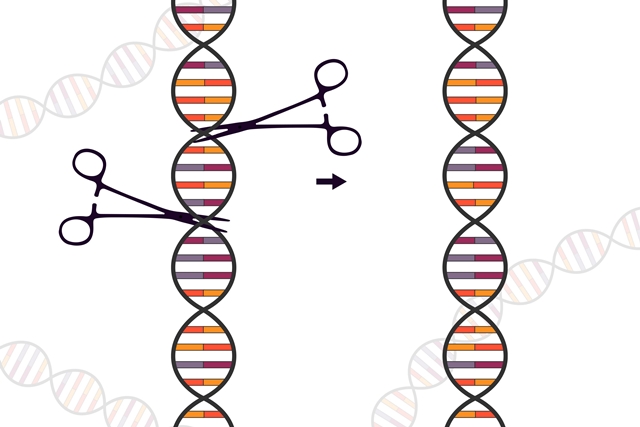17 Oct. 2023. A new company is underway that says it adapts the gene editing technique Crispr to make detecting nucleic acid targets like DNA or RNA faster and simpler. VedaBio in San Diego emerged from stealth mode with a process based on research in biomedical engineering at University of Illinois, and is raising $40 million in its first venture round.
VedaBio is a two year-old business developing a process for molecular detection, such as identifying a suspected pathogen in a blood or saliva sample. The so-called gold standard for detecting molecular targets is polymerase chain reaction or PCR that takes a small sample of DNA and makes a large volume of copies to amplify the DNA sample for detailed sequencing and analysis. Using PCR today, however, usually requires expensive lab equipment and often a long turnaround time for analysis.
The VedaBio technology it calls Crispr Cascade seeks to make that detection process faster and easier. The company’s process uses elements of the gene editing technique Crispr, short for clustered regularly interspaced short palindromic repeats, to guide gene-editing enzymes to specific locations and cleave the DNA. In this case, VedaBio uses a combination of RNA and protein as a guide to a precise DNA location, where a second RNA-protein combination makes a series of cuts in the DNA target to create a large volume of copies to amplify that target. For that amplifying to occur, the initial cuts in the target DNA generate a cascade effect to produce a high volume of cleavages, with those DNA pieces in the sample bound to reporter molecules for visual or electronic detection.
Results in under one minute
Anurup Ganguli and colleagues discuss the technology in two patent applications filed in Dec. 2022 and Feb. 2023. The patent documents describe a process that returns detection results in less than a minute and in ambient temperatures of 16 degrees C (61 F) or less, for applications in research, medical diagnostics, environmental monitoring, and food safety. Ganguli is a co-founder and CEO of VedaBio, and previously served as a postdoctoral researcher and staff scientist in the biomedical engineering lab of Rashid Bashir at University of Illinois at Urbana-Champaign.
Bashir, also a co-founder of VedaBio, and lab associates study micro- and nanotechnology applications in diagnostics and therapeutics, including microfluidics or lab-on-a-chip devices and biosensors for diagnostics. In July 2017, Science & Enterprise reported on a microfluidics device developed in the Bashir lab to quickly detect sepsis that the researchers tested with hospital patients.
“With the Crispr Cascade reaction,” says Ganguli in a VedaBio statement, “we have unlocked the true power of Crispr with a platform that delivers near-instant molecular detection of highly multiplexed analytes with best-in-class accuracy, all without the need for target amplification.”
VedaBio is raising $40 million in its first venture round, led by life science investor OMX Ventures in Lincolnshire, Illinois that says it invests mainly in early stage start-ups. Joining the round are venture investor Kleinmuntz Associates in Chicago and a group of undisclosed private investment managers known as family offices. According to PitchBook, VedaBio raised $1.15 million in seed funds in Aug. 2021.
More from Science & Enterprise:
- FDA Clears Genetic Cancer Risk Detection Test
- Cardiac Tech Start-Up Partners with Mayo Clinic
- Challenge Seeks Point-of-Care, Home Maternal Health Technologies
- NIH Challenge Seeks Early Alzheimer’s Indicators with A.I.
- A.I. Analytics Detect Heart Failure in Single Ultrasound View
We designed Science & Enterprise for busy readers including investors, researchers, entrepreneurs, and students. Except for a narrow cookies and privacy strip for first-time visitors, we have no pop-ups blocking the entire page, nor distracting animated GIF graphics. If you want to subscribe for daily email alerts, you can do that here, or find the link in the upper left-hand corner of the desktop page. The site is free, with no paywall. But, of course, donations are gratefully accepted.
* * *


 RSS - Posts
RSS - Posts
You must be logged in to post a comment.